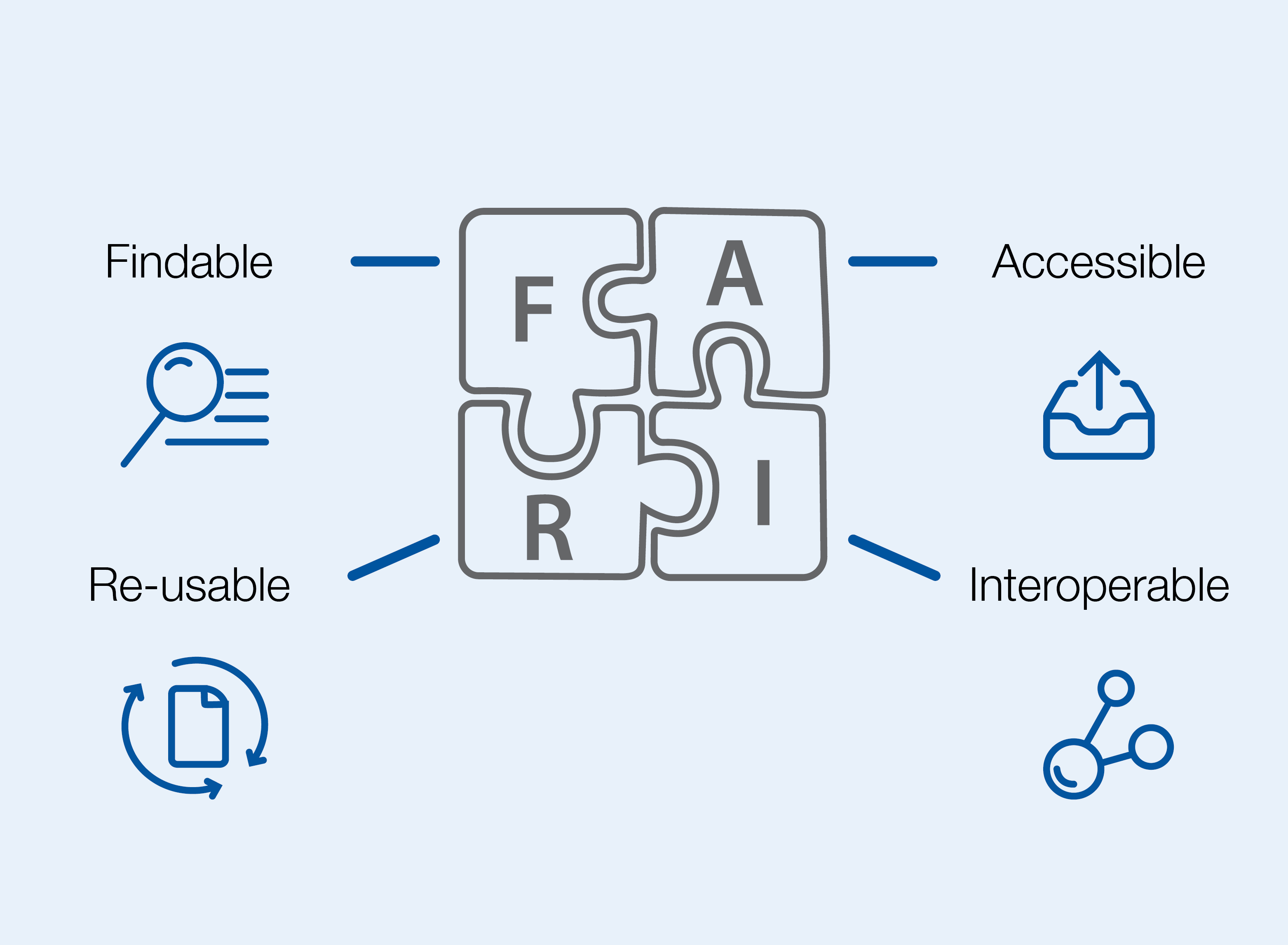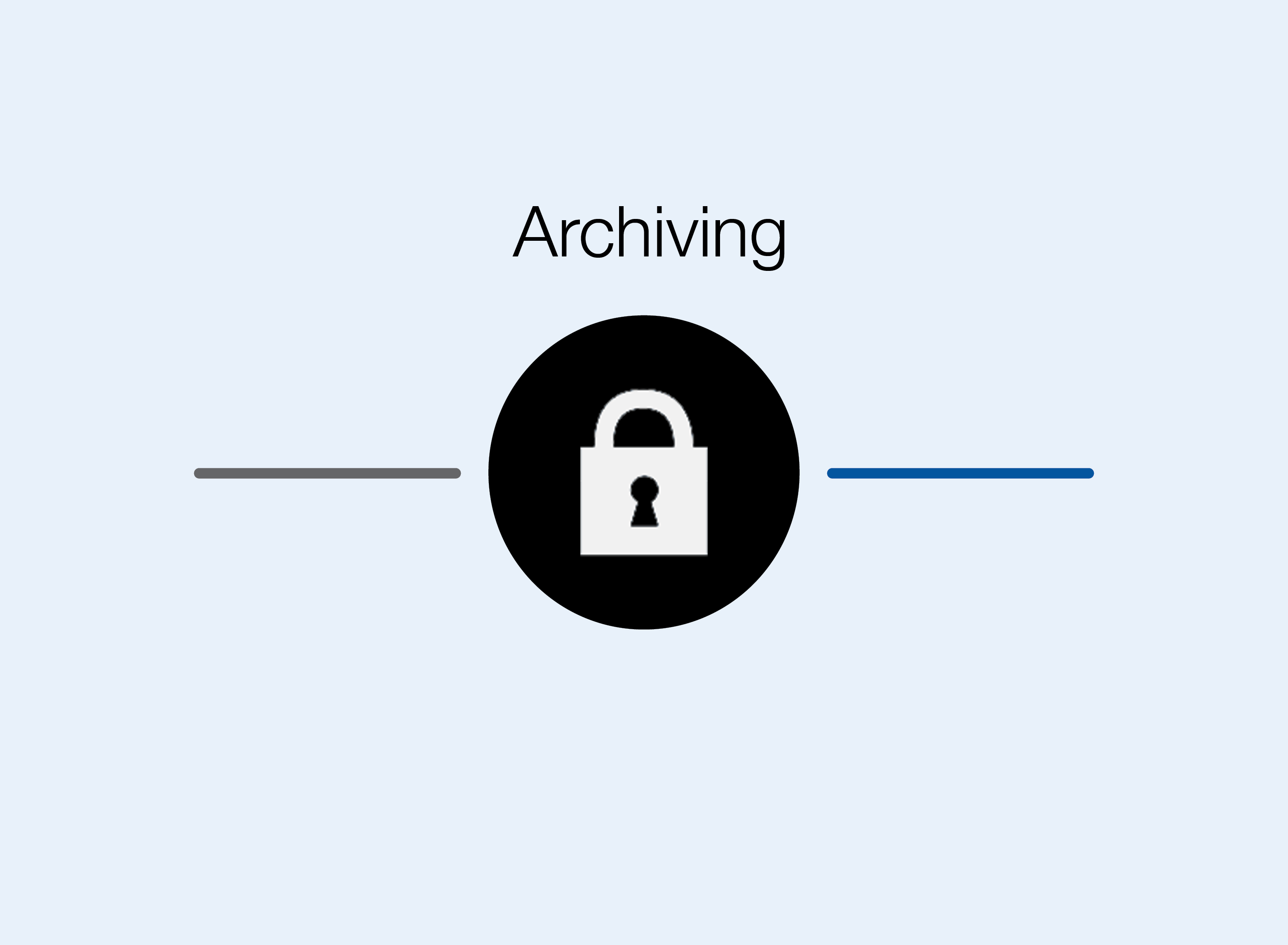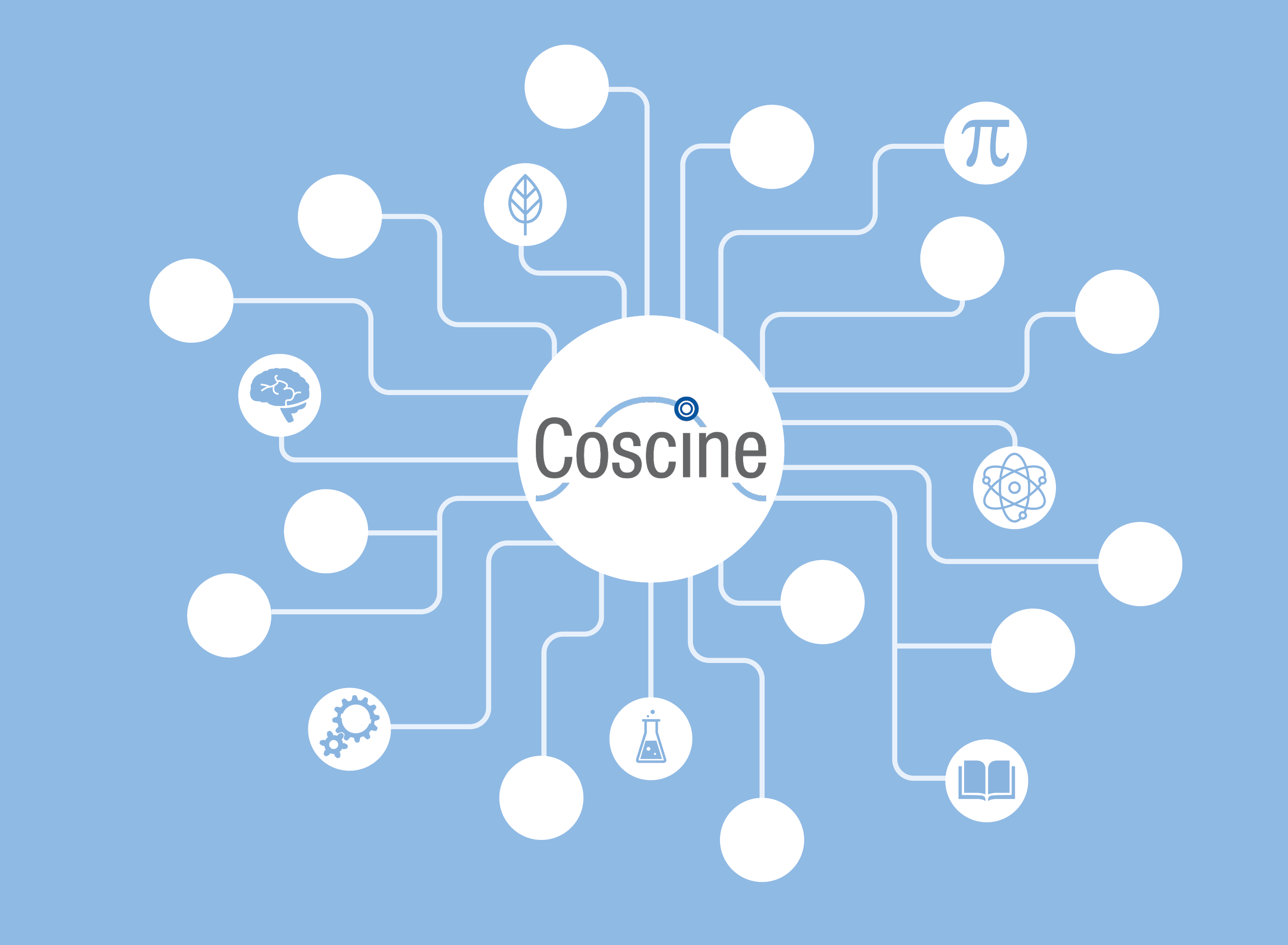
Scientific integrity forms the basis of trustworthy science. Researchers have a great responsibility to meet these requirements in terms of good scientific practice and the FAIR principles, which are also anchored in the Higher Education Act of NRW 1 2. The FAIR principles impose requirements at a high level of abstraction, both on the actual research data and on the descriptive metadata, to enable researchers to find and meaningfully interpret the reused data.
The goals of the FAIR (Findable, Accessible, Interoparable, Reusable) principles serve to guide future research data management. Coscine takes these principles and, through an integrative approach, enables even simple data storage solutions to be FAIR. In Coscine, data sources and services that have proven themselves in individual institutes and disciplines are integrated and made FAIR through standardized metadata and access management. The underlying project structure thereby reflects the basic structure of many scientific papers. To support the FAIR principles, Coscine uses the handle-based EPIC-PID system to uniquely identify storage location and contained files or data objects on a global level. RDF triplets are further used to represent the associated metadata, which largely covers the FAIR requirements for interoperability and reusability of the stored metadata. Coscine also ensures that the data objects and associated metadata, linked by the PID, are discoverable and accessible via a REST API independent of the actual storage provider. The data objects managed in Coscine thus bundle raw data, metadata, interfaces, and PIDs into a linked record following the “FAIR Digital Objects” model (De Smedt, et al. 2019). By using Research Data Storage (RDS) to store research data, retention or archiving periods after the completion of a research project can be ensured in line with FAIR principles, in addition to metadata and project management.


